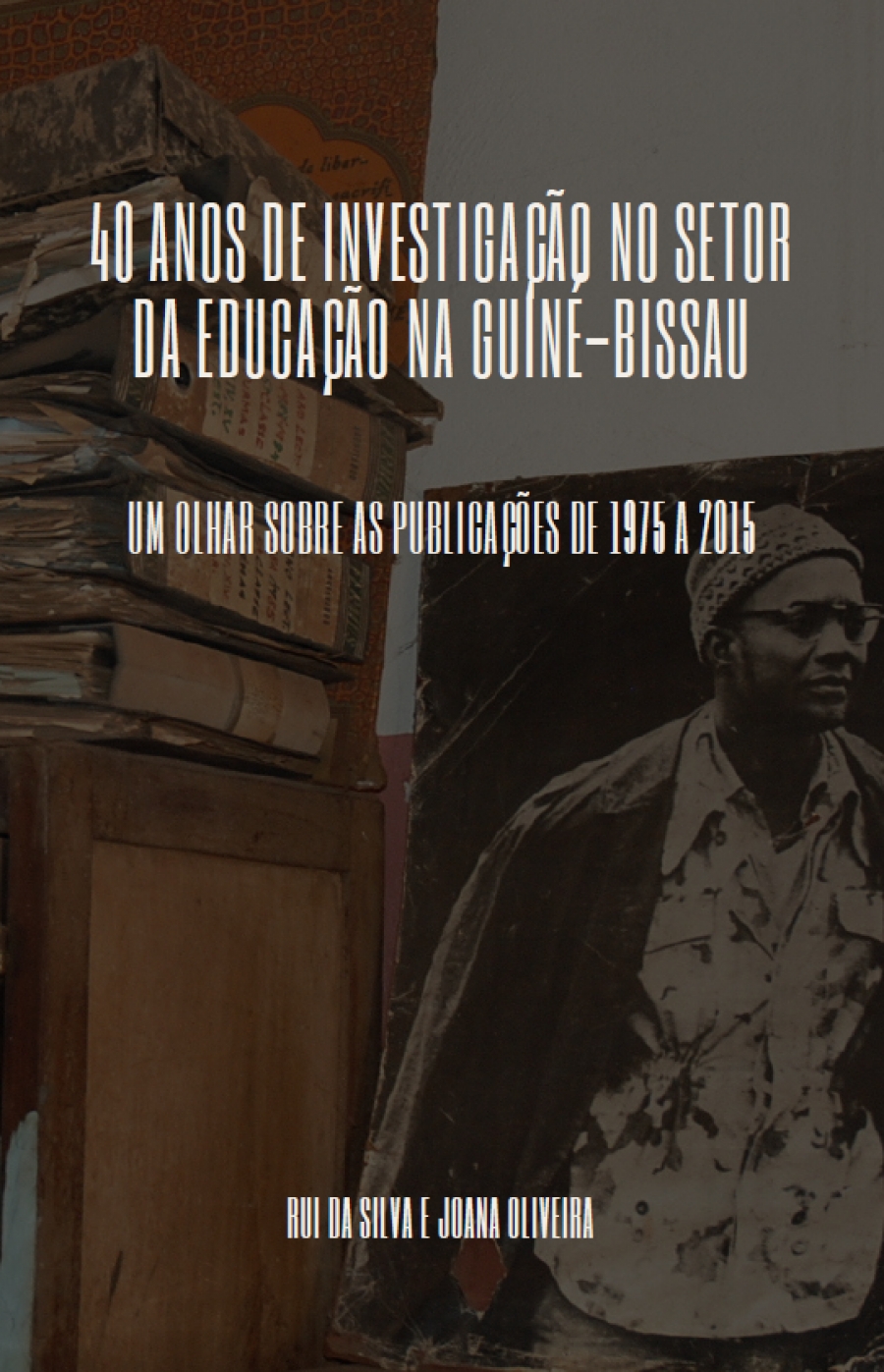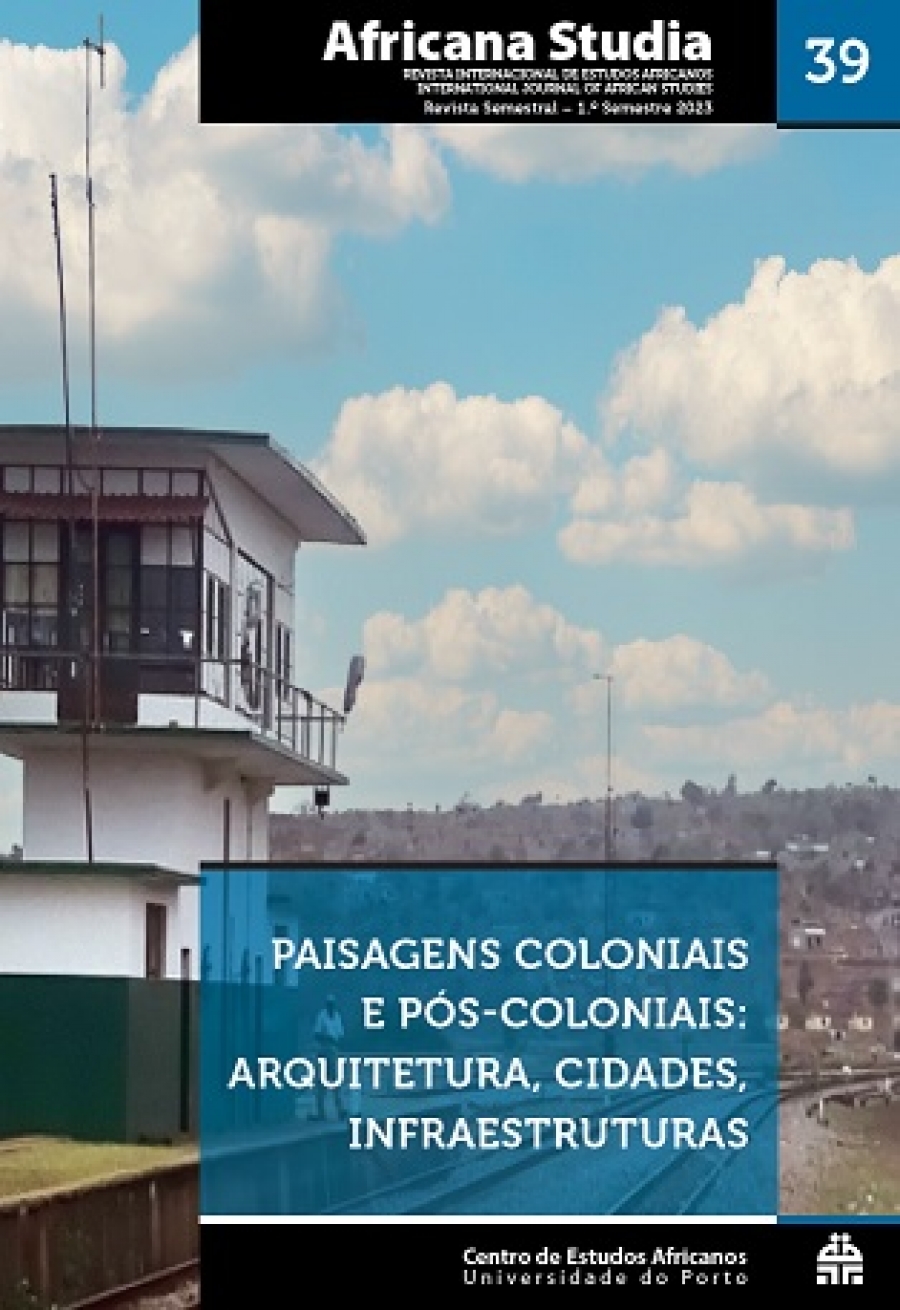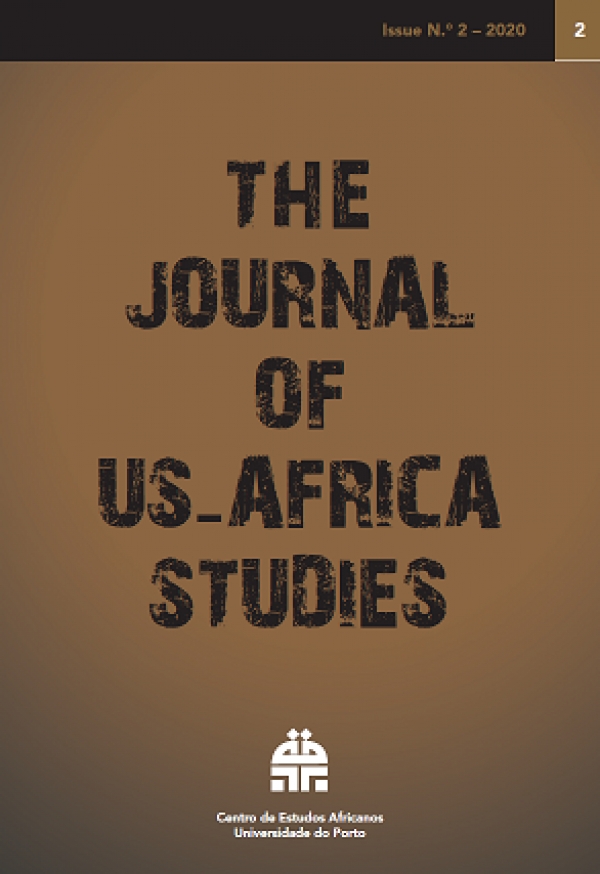Índice
- Editorial (pág.5)
- US-AFRICA
- Maciel Santos - Rents in the political economy of colonial Angola – from the coffee boom to Cabinda Gulf (p.10)
- Isabel Lourenço - US Administrations and Morocco from 1974 to 2021: The Double Standards of a Political Machine in Regard to the Western Sahara Conflict(p. 54)Soror oumeddour- U.S. Cultural Exchange Programs in Algeria: Opportunities and Challenges (p. 90)
- AFRICAN ISSUES
- Martin Raymond Willy MBOG IBOCK - La Transformation des Politiques Publiques de la Santé au Cameroun(p. 108)
- Bahdon Abdillahi Mohamed - Dialogue ou Diversion des Membre de L’Elite Leader en Afrique Francophone (p. 146)
Editorial
The US Secretary of State Antony J. Blinken’s statement on his country believing that it is time to “stop “treating Africa as a subject of geopolitics” and “start treating it as the major geopolitical player it has become,” shows that Africa is clearly having an increasing importance in the United States foreign policy agenda. Moving from the bottom of the priorities to being a major focus of the US government implies that the United States is engaged with Africa and playing an active role in fostering its vision in the region. In light of the Sino-Russian presence in Africa, a rising consensus among the American ruling elite shows that the US is falling behind in the continent.
Original peer reviewed articles which deal with the US-Africa social and political relations in this issue are meant to address the US policies towards the continent. They aim to advance knowledge of the different geopolitical regions along with many other US-Africa bilateral political, economic and social relations. Keeping up with the same line of themes in the previous issue, this yearly issue of 2020 contains five papers, three in the section of “US-Africa” and two in the section of “African Issues”.
Maciel Santos’ paper titled “Rents in the Political Economy of Colonial Angola – from the Coffee Boom to the Cabinda Gulf Oil Corporation” deals essentially with the complex relationship between rents and politics in Angola during the last three decades of colonial administration and extends to the US involvement through the Cabinda Gulf Oil Corporation.
Santos explains the profit cycles in Angola and focuses major points such as: the fall and rise of the Angola super-profits and the state partnership in the super-profits where he provides an understanding to different policies in support of rent incomes along with their impact on Angola politics. The challenges to Cabinda Gulf rents and what the entire region stands for are also discussed in the last part of the article. Santos concluded to the fact that from the moment when capital exports could dispose of workforces of much lower prices than in the markets from where those capitals came from, the political forces which provided access to that advantage got entitled to participate in the distribution of differential rents.
The paper titled “US Administrations and Morocco from 1974 to 2021: The Double Standards of a Political Machine in Regard to the Western Sahara Conflict” by Isabel Lourenço traces back the different US administrations’ stances towards the Western Sahara conflict. Lourenço provides an account on how the United States has been “instrumental” in the Western Sahara conflict through their continuous support to the Kingdom of Morocco and its military occupation of Saharawi territory. The author demonstrated the importance of the study through the various presidents’ “fickle” positions which were not always being in accordance with the US Senate and the personal envoys of the UN Secretary Generals.
Soror Oumeddour in turn authored a paper titled “US Cultural Exchange Programs in Algeria: Opportunities and Challenges” where she analyzed the US reliance on exchange programs to promote its own interests in the region. Ongoing programs of scholarships for students’ mobility are based on the strategies that aim at strengthening the universities’ international dimension. Oumeddour stresses the importance of the ongoing programs of scholarships for students’ mobility as a strategic soft power tool with long-term impact to Americanize the world. The paper’s case study focused on US Cultural Exchange Programs in Algeria between opportunities and challenges.
The “African Issues” section contains two papers in French with a major focus on African realities. Bahdon Abdillahi Mohamed introduced an article titled “Dialogue ou diversion des membres de l’élite leader en Afrique francophone” focusing on the end of the 1990s that was an era of constitutional and political change. According to the author, although some Africanists were quick to talk about democratic change back then, Thirty years later, apart from Benin, the Cape Verde Islands and Ghana, the results are not positive in the political sphere and in institutional functioning. Bahdon thinks that the continent is witnessing the establishment of hybrid regimes in many countries, even though they are not the continuity of former authoritarian regimes.
The second paper in the “African Issues” section is titled “Coopération de défense et de sécurité au Sahel: Enjeux et implications du partenariat stratégique entre les puissances étrangères et les Etats de la région depuis la fin de la guerre froide”. In this article, Ibock explains the issues and implications of the strategic partnership between foreign powers and states in the Sahel region since the end of the Cold War. Ibock’s approach to that, focused on the defense and security cooperation in attempt to provide an understanding to the ramifications of the foreign interventions in the region.
Mourad Aty*
* Center of African Studies University of Porto / CEAUP.
Editor
Centro de Estudos Africanos da Universidade do Porto
FLUP – Via Panorâmica s/n 4150-564 Porto
Director: Mourad Aty
Editorial Office: Carla Delgado
Graphical Review: Henriqueta Antunes
Email: عنوان البريد الإلكتروني هذا محمي من روبوتات السبام. يجب عليك تفعيل الجافاسكربت لرؤيته.
Periodicity: yearly
ISSN: 2184-6251
ISSN Eletrónico: 2975-8513
DOI: https:doi.org/10.21747/21846251/jour2
Webpage: https://www.africanos.eu/index.php/en/editions/the-journal-of-usafrica-studies-tjusas
Layout Design: Fátima Marques
Cover Design: Mourad Aty
The Journal of US-Africa Studies is an international, academic and interdisciplinary journal published in Portugal by the Center of African Studies of the University of Porto (CEAUP). TJUSAS publishes original, peer reviewed and high quality articles which may contribute in a novel way to deal with the US-Africa social and political relations. It is meant to address the US policies towards the continent and to advance knowledge of the different geopolitical regions along with many other US-Africa bilateral political, economic, social and cultural relations. The journal is published yearly where the editorial project focuses on three major sections in each issue: US-Africa, African Issues and Commentary.
Scientific Board
Antonino Adamo (National Research Council CNR – Italy)
Benoit Gaudin (Université de Versailles Saint-Quentin-en-Yvelines – France)
Bidisha Biswas (Western Washington University – USA)
Dmitri M. Bondarenko (Russian State University for the Humanities – Russia)
Christa Jones (Utah State University – USA)
Emmanuel Tchumtchoua (Université de Douala – Cameroon)
Francisco Topa (Universidade do Porto – Portugal)
Jacinto Rodrigues (Universidade do Porto – Portugal)
Jaime Rodrigues (Universidade Federal de São Paulo – Brasil)
Maciel Santos (CEAUP – Portugal)
Madalina Florescu (CEBRAP – Brasil)
Sergey V. Kostelyanyets (Peoples’ Friendship University of Russia – Russia)
Shay Welch (Spelman College – USA)
Tatiana Smirnova (University of Florida – USA)
T. P. Wilkinson (Universidade do Porto – Portugal)
Editorial Board
Abdulhafeth Khrisat (IMSIU – Saudi Arabia)
Amélia Queirós (CEAUP – Portugal)
Carla Delgado (CEAUP – Portugal)
Deepak Bhaskar (Daulat Ram College, University of Delhi – India)
Flora Oliveira (CEAUP – Portugal)
Jorge Teixeira (CEAUP – Portugal)
Sylvie Lembe (CLESID – Université Jean Moulin, Lyon – France)
Total or partial reproduction or copying of the content of this publication (in paper or electronic version) is strictly prohibited without prior written consent and authorization from CEAUP.




